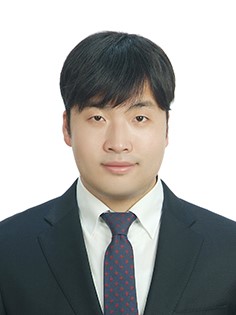people

Dr. Je-Kyung Ryu, a graduate of the Physics Department at KAIST in 2014, received the 2017 Marie Sklodowska-Curie Individual Fellowship.
Established in 1996, the Marie Sklodowska-Curie Individual Fellowships support young scientists in or outside Europe to help them grow as independent researchers. The recipients are recognized to have the highest potential to make a difference in science and technology and work on research and innovation.
Dr. Ryu is currently working as a postdoctoral researcher at the Cees Dekker Lab in the Department of Bionanoscience at the Kavli Institute of Nanoscience at Delft University of Technology (TU Delft), Netherlands.
He was among six international researchers at TU Delft who were awarded this research grant.
The grant of 177,000 euros will be offered for two years from March 2017 to February 2019 to cover his salary and research expenses.
For a news article published by TU Delft on the award, please click below:
QN and BN Successfully Attract Young Scientific Talent
February 1, 2017
-
research KAIST sends out Music and Bio-Signs of Professor Kwon Ji-yong, a.k.a. G-Dragon, into Space to Pulsate through Universe and Resonate among Stars
KAIST (President Kwang-Hyung Lee) announced on the 10th of April that it successfully promoted the world’s first ‘Space Sound Source Transmission Project’ based on media art at the KAIST Space Research Institute on April 9th through collaboration between Professor Jinjoon Lee of the Graduate School of Culture Technology, a world-renowned media artist, and the global K-Pop artist, G-Dragon. This project was proposed as part of the ‘AI Entertech Research Center’ be
2025-04-10 -
event KAIST, Galaxy Corporation Hold Signboard Ceremony for ‘AI Entertech Research Center’
KAIST (President Kwang-Hyung Lee) announced on the 9th that it will hold a signboard ceremony for the establishment of the ‘AI Entertech Research Center’ with the artificial intelligence entertech company, Galaxy Corporation (CEO Yong-ho Choi) at the main campus of KAIST. < (Galaxy Corporation, from center to the left) CEO Yongho Choi, Director Hyunjung Kim and related persons / (KAIST, from center to the right) Professor SeungSeob Lee of the Department of Mechanical Engineer
2025-04-09 -
research KAIST Identifies Master Regulator Blocking Immunotherapy, Paving the Way for a New Lung Cancer Treatment
Immune checkpoint inhibitors, a class of immunotherapies that help immune cells attack cancer more effectively, have revolutionized cancer treatment. However, fewer than 20% of patients respond to these treatments, highlighting the urgent need for new strategies tailored to both responders and non-responders. KAIST researchers have discovered that 'DEAD-box helicases 54 (DDX54)', a type of RNA-binding protein, is the master regulator that hinders the effectiveness of immunotherapy—opening
2025-04-08 -
research KAIST Develops Retinal Therapy to Restore Lost Vision
Vision is one of the most crucial human senses, yet over 300 million people worldwide are at risk of vision loss due to various retinal diseases. While recent advancements in retinal disease treatments have successfully slowed disease progression, no effective therapy has been developed to restore already lost vision—until now. KAIST researchers have successfully developed a novel drug to restore vision. < Photo 1. (From left) Ph.D. candidate Museong Kim, Professor Jin Woo Kim, a
2025-03-31 -
research KAIST provides a comprehensive resource on microbial cell factories for sustainable chemical production
In silico analysis of five industrial microorganisms identifies optimal strains and metabolic engineering strategies for producing 235 valuable chemicals Climate change and the depletion of fossil fuels have raised the global need for sustainable chemical production. In response to these environmental challenges, microbial cell factories are gaining attention as eco-friendly platforms for producing chemicals using renewable resources, while metabolic engineering technologies to enhance these
2025-03-27